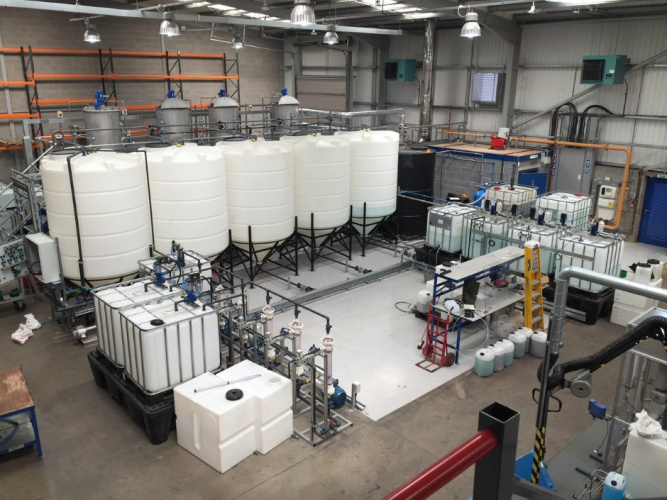Judged by a panel of leading UK engineers, winning entries had to demonstrate that they were innovative, collaborative and likely to have an impact in their field of application.
The winner of this year’s Manufacturing Technology – a collaboration between the University of Nottingham with Promethean Particles and others – will make sustainable nanoparticles for billions of devices.

Winner: SHYMAN – Sustainable Hydrothermal Manufacturing of Nanomaterials
Partners: University of Nottingham with Promethean Particles and others
Category Sponsor: Mazak
Promethean is the outcome of a consortium of 18 industry and academic partners across Europe that developed the SHYMAN project (Sustainable Hydrothermal Manufacturing of Nanomaterials) winning a €10m EU Framework 7 grant to develop a cleaner process to manufacture nanomaterials in large volumes.
These tiny particles, that can measure less than one billionth of a metre, are used in the manufacture of inorganic and organic pigments and metal nanomaterials, which are used in industrial applications including printed electronics, Metal Organic Frameworks (MOF), catalysts, healthcare and nanocomposites, including plastics and coatings.
SHYMAN has led to Promethean, building the largest multi-material nanoparticle plant in the world in Nottingham. The process – a continuous, sustainable hydrothermal synthesis of high-quality inorganic nanoparticles – uses hot water rather than potentially hazardous chemicals to fabricate the nanoparticles.
Crucially, the process has been successfully scaled up, and the working plant is able to produce up to 200kg of nanoparticles per hour. It now produces 1,000 tonnes of nanomaterials a year, making it viable for commercial supply to chemical and industrial companies including Solvay, Fiat and Repsol.
From a personal perspective, Prof. Lester is proud of what SHYMAN has achieved. “This technology was described as the ‘Holy Grail’ by a senior person working in the catalyst field. People had tried it and written it off because it was so difficult.”
Read the full article at the engineer.
Posted on Thursday 7th November 2019